Pope Francis has announced the beatification of Bishop Alvaro del Portillo, St Josemaría’s closest collaborator and Opus Dei’s first prelate.
Don Alvaro will be beatified in Madrid on Saturday 27 September. Maybe I will go. Who knows? My first trip to Europe was in 2002, to attend the canonisation of St Josemaría. I wasn’t in Opus Dei back then, but I owed a lot to Josemaría, and I was happy to celebrate his canonisation! My other trip to Europe was the 2011 World Youth Day, in Madrid. Can you see a Spanish theme emerging?
On the other hand, I intend to go to Rome next January for the CCC’s international clergy conference. Diocesan priests don’t take a vow of poverty, but we do try to foster simplicity. An advisable model is the father of a large family, scraping to get by. In other words, I imagine my own Dad’s spending habits back when I was in primary school. I remember it being a big deal when he bought a new suit. I don’t recall him jetting off to Europe twice in three months!
Whatever of that, here’s a few interesting anecdotes about Don Alvaro, taken from Alvaro Del Portillo, by Salvador Bernal:
On the Spanish Civil War
Don Alvaro spoke about that period of his life only on rare occasions. One such occasion took place in the Filipino city of Cebu, at the end of January 1987. He was trying to get across how necessary it is to love and to foster peace, and this brought to his mind the persecution against the Church which had been unleashed in Spain during the civil war.
“I had never been involved in any political activity,” he said, “and I was not a priest, or a religious, or even a seminarian; I was just an engineering student. I got thrown in jail just because I came from a Catholic family. By then I was already wearing glasses, and one day one of the guards came up to me—his name was Petrof, it’s a Russian name—and he put a pistol to my temple and said, ‘You’re wearing glasses—you must be a priest.’ He could have killed me at any moment. I think the only reason he didn’t was because God thought I still had a lot of fighting to do against the devil, or because I was not worthy of heaven. It was terrifying.”
On hearing his first confession (I can relate to this one!)
After his ordination, Don Alvaro became an even firmer support, so to speak, for the founder of Opus Dei. The overwhelming avalanche of supernatural gifts which God was pouring out on Father Josemaría made it necessary for him to have at his side an intelligent and humble priest who was truly close to him. The founder had a responsibility to discern and to get confirmation of the paths which the Holy Spirit was opening in his ardent and vibrant soul, and to distinguish, when necessary, between what had to do with his interior life and what had to do with the foundation. And the reality is that he only went ahead with complete peace of mind when he began to open his heart and soul to Don Alvaro not only as his closest associate, but as his confessor as well.
Despite the openness and ease that characterized their relationship, that first confession was one of the few times in his whole life when Don Alvaro became noticeably nervous. The confession took place on June 26, 1944—the very day after Don Alvaro’s ordination. The two of them were at the Villanueva Street center, in Madrid. Father Josemaría asked Don Alvaro if he’d heard any confessions yet, and when he said no, the founder said that he would like to make a general confession to him.
The confession had hardly started when Don Alvaro began to worry that he might forget the words of absolution. He knew the prayer by heart, but, as he himself had just said, he had not as yet given anybody sacramental absolution. This was so much on his mind that as soon as Father Josemaría got finished confessing his sins, Don Alvaro started saying the prayer of absolution. The founder had to interrupt him. “My son,” he said, “I can understand it if you don’t want to give me any advice, but you do need to at least give me a penance!” So Don Alvaro gave him one, but then when he started the prayer of absolution again, he forgot how it went. He had to repeat it after the founder!
On ecumenism
On another occasion, a German fellow named Mathias, who belonged to some evangelical denomination, addressed Don Alvaro publicly, not long after the death of Mgr Escriva. “How can I find out the will of God for my life? How can I know what direction I should take?”
Don Alvaro spoke to him about the Gospel, about freedom of conscience, and about the one Church founded by Jesus Christ: the Catholic Church. “In the sixteenth century,” he said, “pieces were chipped off of that great Church of Christ, but those pieces still have something of that divine richness. Pope Pius XI used to say that it was like splinters from a gold-bearing rock—even the tiniest piece has a few grains of gold. You have a lot of gold in your faith. You believe in the Father, in the Son, and in the Holy Spirit. You believe in so many things… But I would be a hypocrite if I were not to tell you that you’re still missing something of the true faith, the faith that your ancestors had before they separated themselves from the one Church of Jesus Christ. The only thing I can do is ask you for permission to pray for you, that the Holy Spirit will give you the fullness of faith . . . In return, I ask of you one thing: that you pray for me. Let’s make between us a kind of pact—you pray that I be a worthy successor of a saint, because I am a poor man, a poor priest of Jesus Christ.”
His death
Death took him by surprise in March 1994, just after his return from the Holy Land. On March 23, 1994, Don Javier Echevarría made this announcement: “Last night a heart attack ended the life of Bishop Alvaro del Portillo, Prelate of Opus Dei. A little before four in the morning, he called me to tell me he was feeling bad. While the doctor was tending to him, I myself gave him the last sacraments, in accord with his explicitly and often stated wish.”
At 6pm that evening, Pope John Paul II went in person to pray in the funeral chapel, accompanied by Cardinal Angelo Sodano, the Vatican Secretary of State. And before and after that extraordinary visit, many cardinals and prelates of the Roman Curia and superiors of religious orders went to pay their last respects.
John Paul was especially touched by the fact that the Lord had called Don Alvaro home upon his return from the Holy Land. He put a lot of emphasis on this in the audience that he gave to the participants of the 1994 UNIV Congress, which, as usual, took place in Holy Week. “At this time,” he said, “the thought of the Holy Land is for you very tied in with the person of Bishop Alvaro del Portillo. Just before calling him to himself, God allowed him to make a pilgrimage to those places where Jesus spent his life on earth. Those were days of intense prayer which united him very closely to Christ and, in fact, prepared him for his final meeting with the Blessed Trinity.”

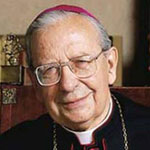
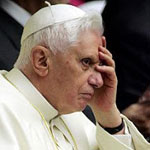
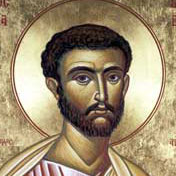
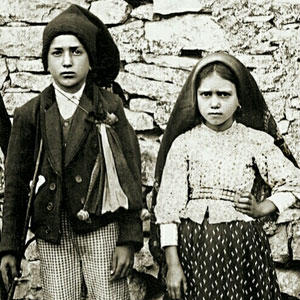
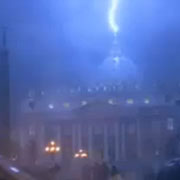
In the event you can’t make it to Spain for the beatification, you could say a votive Mass of the Beatus, moments after it’s been confirmed!
A very informative and well written article. Very good reading. Well, I am sure that you will be able to go to Spain and to Rome. Congratulations! I wish you all the best. You are a wonderful person and a priest. Yes, Fr John, there is a battle going on and the battle is against the Devil.
Great to read this. Terry and I went to mass at St Mary Star of the Sea on Thursday and it was wonderful… Didnt realized the Opus Dei Priests were there…. A great sacredness for confession Mass and Adoration for families.. It is every Thursday. We will be going back… and they pray for Priests and the Pope and families..
Thanks Fr John lovely to read stories of saints. I wish I could be one but I am so sinful and weak that when I get to those gates I can almost here the Lord saying “send her the other way!”
Anne — That’s not true! God loves you madly! He’s called you to be happy forever with Him in heaven — I guarantee it! Just go to confession and you’ll be ready to keep going forward with tremendous joy. Give it a try — you’ll see!
I will be praying for you,
Fr. Greg
Thanks for prayers Fr Greg love you too.
I would love to hear the words “welcome goo and faithful servant” but I never feel worthy enough.
Keep well and blessings on your life.
Anne
An amazing man, I thought the part about him being singled out as a priest because he was wearing lasses was interesting, it is like the devil was trying to threaten him with fear and death for even having a calling to the priesthood through something as small as wearing glasses. Obviously the Devil recognised him as a very holy man even in his younger years and tried to intimidate him and failed, and thus he has succeeded to the present status of Beatification!
Hello it’s joke time
JOKE OF THE WEEK
Ed & Nancy met while on a singles cruise and Ed fell head over heels for her.
When they discovered they lived in the same city only a few miles apart Ed was ecstatic.
He immediately started asking her out when they got home.
Within a couple of weeks, Ed had taken Nancy to dance clubs, restaurants, concerts, movies, and museums.
Ed became convinced that Nancy was indeed his soul mate and true love.
Every date seemed better than the last.On the one-month anniversary of their first dinner on the cruise ship, Ed took Nancy to a fine restaurant.
While having cocktails and waiting for their salad, Ed said, “I guess you can tell I’m very much in love with you.
I’d like a little serious talk before our relationship continues to the next stage.
So, before I get a box out of my jacket and ask you a life changing question, it’s only fair to warn you, I’m a total golf nut.
I play golf, I read about golf, I watch golf on TV. In short, I eat, sleep, and breathe golf.
If that’s going to be a problem for us, you’d better say so now!”Nancy took a deep breath and responded, “Ed, that certainly won’t be a problem.
I love you as you are and I love golf too; but, since we’re being totally honest with each other, you need to know that for the last five years I’ve been a hooker.
“Ed said, “I bet it’s because you’re not keeping your wrists straight when you hit the ball.”
JOKE OF THE WEEK
Spanish Oysters
An Australian stopped at a local restaurant following a day roaming around in Madrid.
While sipping his wine, he noticed a sizzling, scrumptious looking platter being served at the next table.
Not only did it look good, the smell was wonderful.
He asked the waiter, ‘What is that you just served?’
The waiter replied, ‘Si Senor, you have excellent taste! Those are called Cojones de Toro, bull’s testicles from the bull fight this morning. A delicacy!’ The Australian said, ‘I will have the same please.’ The waiter replied, ‘I am so sorry senor. There is only one serving per day because there is only one bull fight each morning.. If you come early and place your order, we will be sure to save you this delicacy.’ The following day he returned, placed his order, and that evening was served the one and only special delicacy of the day. After a few bites, inspecting his platter, he called to the waiter and said, ‘These are delicious, but they are much, much smaller than the ones I saw you serve yesterday.’ The waiter shrugged his shoulders and replied,
“Si, SEÑOR!………… Sometimes the bull wins.”
JOKE OF THE WEEK
A cocky State Highways employee stopped at a farm and talked with an old farmer. He told the farmer, “I need to inspect your farm for a possible new road.”
The old farmer said, “OK, but don’t go in that field.” The Highways employee said, “I have the authority of the State Government to go where I want. See this card? I am allowed to go wherever I wish on farm land.”
So the old farmer went about his farm chores.
Later, he heard loud screams and saw the State Highways employee running for the fence and close behind was the farmer’s prize bull. The bull was madder than a nest full of hornets and the bull was gaining on the employee at every step!!
The old farmer called out, “Show him your card!!”
—
JOKE OF THE WEEK
Mo attends to a revival and listens to the sermon. After a while, the pastor asks anyone with needs to come forward and be prayed over. Mo gets in line and, when it’s his turn the pastor asks, “Mo, what do you want me to pray about?” Mo says, “Pastor, I need you to pray for my hearing.” So the pastor puts one finger in Mo’s ear and the other hand on top of his head and prays for a while. He removes his hands and says, “Mo how’s your hearing now?” Mo says, “I don’t know pastor, it’s not until next Monday
JOKE OF THE WEEK
A preacher was walking down the street when he notices a little boy trying to ring the doorbell but it’s just out of his reach. he watches his efforts for some time and walks over to press the bell. After he pressed it he levelled down to the boy and asked’ “Now what?” to which the boy turned and shouted, “NOW WE RUN!!”
Thats enough jokes for now. The jokes come from the Brett Scott Stable who lives in Mornington. Royal Hamilton races on Sunday! The Jumps races will coming up soon too. Anyone been watching the Herald Sun Tour it’s on at the moment. Get on Race 4NO9 Race 6no6 and Race 8no12 tomorrow night at the Moonee Valley. Keep cool and Keep well from Simon the Pieman.